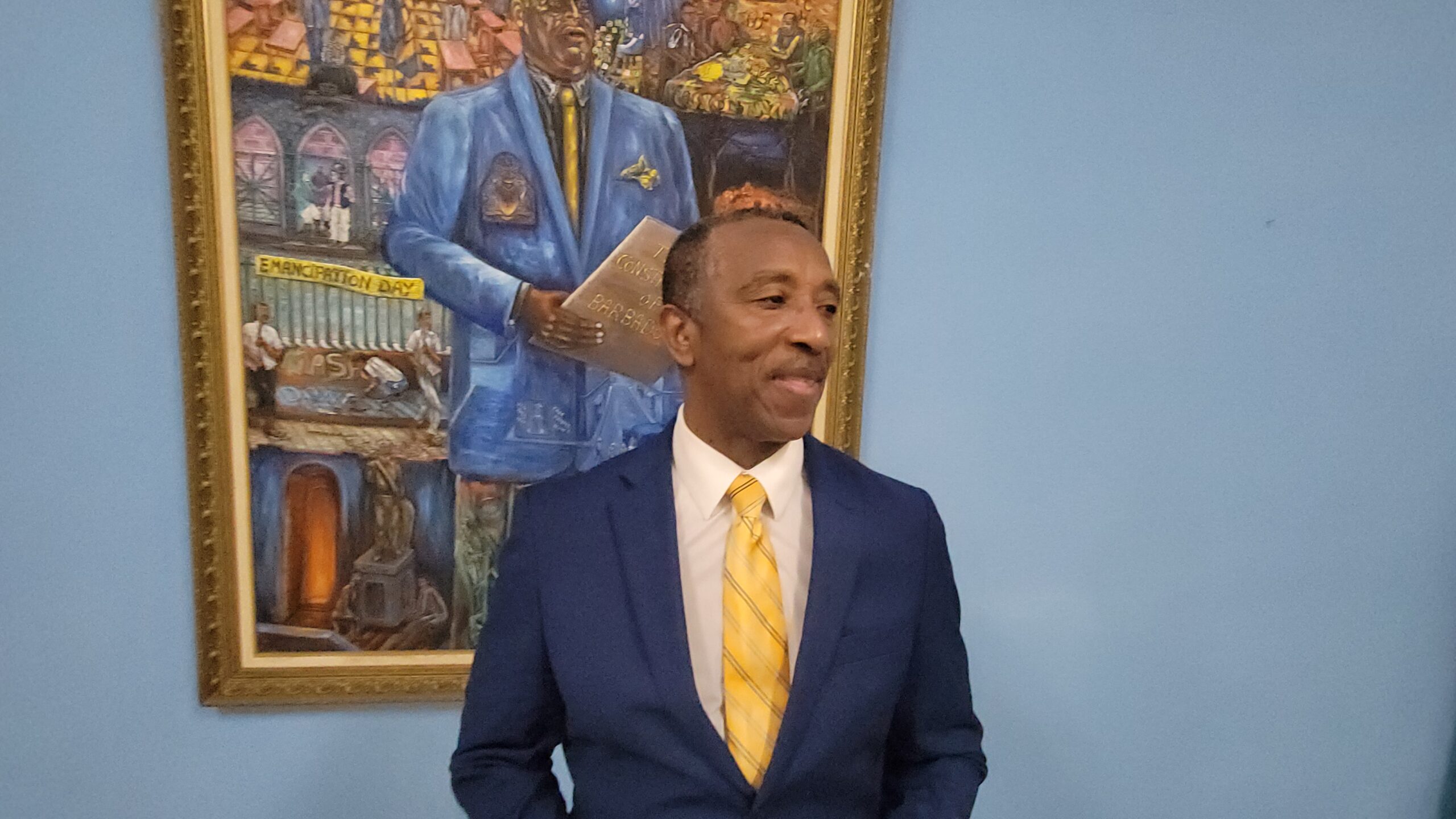Opposition Leader Ralph Thorne Outlines Vision for Democratic Labour Party’s Future

August 27, 2024
Opposition Leader Ralph Thorne outlines vision for Democratic Labour Party's future, focusing on collective good and governance preparation. Contrasts DLP's approach with BLP's self-serving tendencies, pledges to prioritize Barbadians' interests.
Opposition Leader Ralph Thorne, the newly-minted political leader of the Democratic Labour Party (DLP), has laid out his vision for the party’s future, emphasising a return to leadership focused on collective good and thorough preparation for governance.
In his inaugural address to the party’s annual conference, Thorne, who crossed the floor from the Barbados Labour Party (BLP) six months ago, drew stark contrasts between the DLP’s approach and what he characterised as the self-serving tendencies of Mia Mottley’s administration.
“The Mottley regime seems to have inverted political service to a personal philosophical stance that emphasises individual interests over collective interests,” Thorne said. He accused the ruling BLP of fostering a culture where “the pursuit of personal wealth and the vulgarity of the pursuit of celebrity status” takes precedence over the needs of the people.
Thorne pledged that under his leadership, the DLP would reject such tendencies and commit to a governance style prioritising the collective interests of all Barbadians.
“This Democratic Labour Party must remain true to the cause of the forefathers,” he declared, invoking the legacy of past leaders.
The opposition leader announced the DLP’s readiness to assume governmental responsibilities, outlining preparations for the next general election.
“We are making serious preparations to humbly occupy the offices of government,” he stated, revealing the appointment of official spokespersons across various critical sectors.
“We have assembled an impressive team of academics, professionals, and intellectuals to advise our various spokespersons,” Thorne said, highlighting the expertise the DLP plans to draw upon in shaping its policies.
Addressing internal party challenges, Thorne spoke candidly about what he described as attempts by the BLP to destabilise the DLP by interfering in its internal affairs.
“The Barbados Labour Party wants to determine who should lead this party,” he asserted. “Under my leadership, the tentacles of the Barbados Labour Party that reach into the Democratic Labour Party will be cut. We will abide by this mischief no longer.”
As the DLP prepares for the next general election, Thorne sought to assure party members that candidate selection and ratification processes are underway.
“We have pressed ahead with the task of interviewing candidates to contest the next general election,” he announced.
In a section of his speech dedicated to the pressing issues facing the country, Thorne outlined the DLP’s commitment to addressing challenges such as crime, education reform, and economic difficulties. He praised the work of the party’s Commission on Crime, led by Verla DePeiza.
“Under the chairmanship of the able lawyer and criminologist Miss Verla De Peiza, our party’s Commission on Crime has already produced an interim report,” he stated.
He also announced the formation of a Commission on Education reform, acknowledging the importance of education as a pillar of national development.
“We know that education is too sacred an institution to be wasted and exposed to the recklessness of this government,” Thorne said, criticising the current administration’s handling of the education sector. He stressed that the DLP would take a holistic approach to education reform, ensuring that all aspects of the system are improved to better serve the country’s youth.
In addition to announcing new spokespersons, Thorne introduced a team of advisors who will support the party’s efforts.
“We have assembled an impressive team of academics, professionals, and intellectuals to advise our various spokespersons,” he reiterated, underscoring the depth of expertise the DLP plans to leverage. He expressed confidence in the party’s ability to present a compelling and effective alternative to the people of Barbados.
The opposition leader also addressed broader cultural and moral issues, speaking of a “culture of moral decay” that he argues has been allowed to flourish under the current government. He called for a return to traditional values, emphasising the role of the church, cricket, and calypso in maintaining social cohesion.
Expressing confidence in the party’s future, Thorne concluded: “We are winning the confidence and the support of the people. We go forward as a united party, true to the cause of the forefathers, and we are making serious preparations to humbly occupy the offices of government.” (RG)


